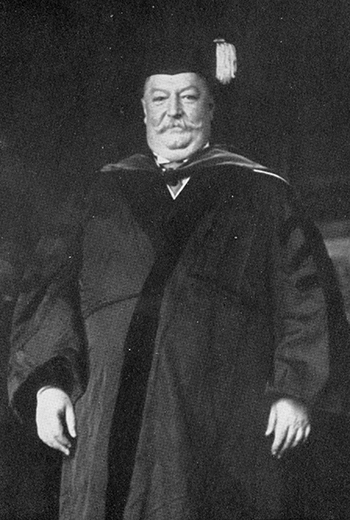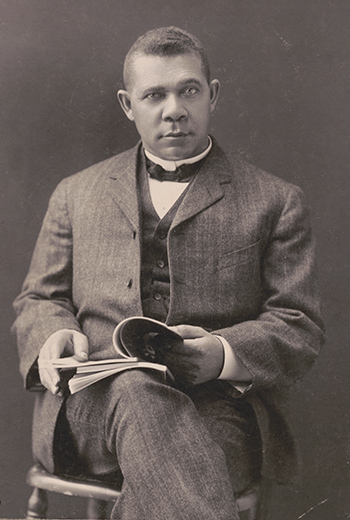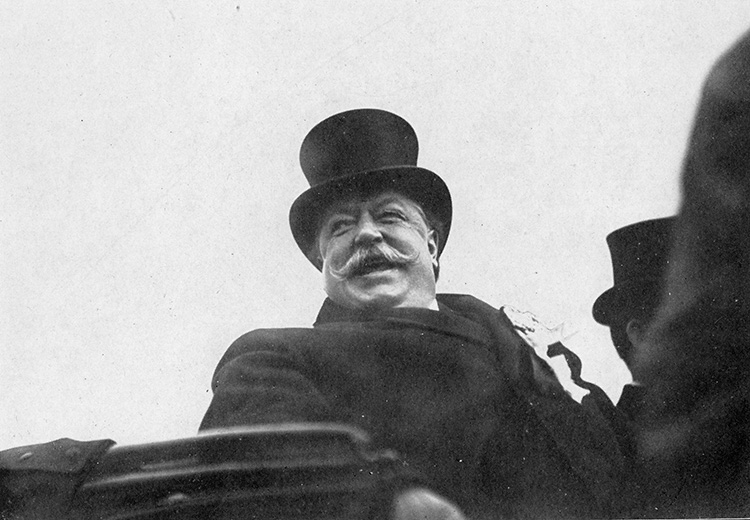Twentieth-Century Celebrities Come to Campus
F
rank Wakeley Gunsaulus (1856–1921), the Chicago minister whose “million-dollar sermon” resulted in the establishment of Armour Institute of Technology, a predecessor to Illinois Institute of Technology, was described as being a skilled orator and influential leader. A charismatic figure, he formed relationships with people in government, industry, and business from around the world.
As Armour Institute’s first president, Gunsaulus thought it important for students to have a strong campus social life; as such, he arranged for newsmakers of the day to deliver impromptu morning assemblies in the auditorium of Armour Mission. As noted in the book The Heritage of Illinois Institute of Technology (1975) by Irene Macauley, among the headlining guests were Harvard University President Charles W. Eliot, Grover Cleveland (United States president from 1885–89 and 1893–97), William Jennings Bryan, Jane Addams, and then-President William Howard Taft, who came to campus on March 9, 1912, to help celebrate Armour Institute’s 20th anniversary.

Image: 1912 Senior Class Yearbook (Armour Institute of Technology)

Image: Library of Congress

Image: 1912 Senior Class Yearbook (Armour Institute of Technology)
Another illustrious student assembly speaker was educator, author, and presidential adviser Booker T. Washington, who reportedly visited campus three times, in 1895, 1903, and 1907. In his 1907 campus presentation, Washington asked students to lend their support to solving what he described as being “the Negro problem.” That term was also the title of a 1903 book of essays on race relations from notable Black Americans, which Washington edited.
“The problem does not concern the Black man alone,” he said. “As we rise, you rise. As we fall, you fall. You can’t harm us without harming yourself, and the deeper you reach down to lift up another, the stronger you will be for it.”
—Marcia Faye